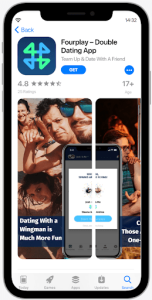Apple Updates its App Store Review Guidelines, Aimed at Improving User Experience

On 4th March 2020, Apple informed developers of their new App Store Review Guidelines. The most notable changes will impact:
- Replies to reviews
- Spam
- Push notifications
- Sign in with Apple
- Data collection and storage
- Mobile device management
Although these changes seem minimal, they can have a big impact. What does this all mean?
Responses to Reviews – Be Respectful and Relevant
A new section of the guidelines, 5.6.1, focuses on replies to App Store reviews. It requests that developers ‘should treat customers with respect when responding to their comments’, and then asks that they keep their ‘responses targeted to the user’s comments and do not include personal information, spam, or marketing’. Here’s the new section in the guidelines: 
Saturated Categories – What is your USP?
Another noteworthy change is the addition of fortune-telling and dating apps to Apple’s list of ‘saturated’ categories in guideline 4.3, meaning Apple reserves the right to reject them unless they provide a ‘unique, high-quality experience’. This is where Apple have added to their ‘saturated’ categories: 
Push Notifications and Marketing
The old guidelines stated that push notifications should not be used for ‘direct marketing purposes’. Apple has now elaborated on this and a developer can use push notifications for marketing, as long as the user has given consent through the app’s UI and there is a method provided for them to opt out too. Here are the updated push notification guidelines: 
Location Based APIs
Previously, Apple banned location based APIs from providing emergency services. This has been revised, and in the new regulations developers have been instructed that they ‘may use Location-based APIs to provide emergency services’. However, they must use the app’s UI to inform users that the services may not work in every circumstance. This avoids any liability should there be an app error. See below for Apple’s changes to the Location Services regulations:
No Crime Enabling in the App Store
Apple are tightening their policy when it comes to apps that are ‘used to commit or attempt to commit crimes of any kind by helping users evade law enforcement’. It clearly warns that such apps will be rejected, whereas formerly the guidelines only made reference to the use of DUI checkpoints (apps should only make reference to ones that are published by law enforcement agencies) and that apps should never encourage ‘reckless behavior’. We’re interested to see what this means for traffic apps that notify drivers of police vehicles ahead. These are the additions to the crime related section of the new guidelines:
All Apps Must be Built with iOS 13 – Keep up!
Apple has also declared that any future apps and app updates must use iOS 13. They will therefore support the Sign in with Apple function, which allows users to make in-app purchases with their apple login details. This also means that apps can offer Dark Mode, ARKit 3 and many more iOS 13 features. With the majority of Apple devices now running on iOS 13, it makes sense for all new apps and app updates to be built with this in mind. You don’t want your app to be left behind.
The Bigger Picture
Generally, in the dynamic world of apps, little changes can have a big impact. It’s important to keep track of them to ensure that you don’t get caught out amidst the constant evolution. Although these updates seem on the minimal side, if you’re a developer they could be the difference between app success and failure. As a developer, you want to do everything possible to avoid expensive mistakes that could be the result of ignoring updated regulations and therefore having privileges revoked. The following categories could be affected by the new guidelines:
- Dating
- Astrology/ Fortune-telling
- Crime
- Traffic
- Location Based APIs/ Emergency Services
- Gaming
- eCommerce
- Social Networking
App owners who have apps in these categories should revise their apps and ensure they meet the new regulations. There can be heavy consequences for failing to adhere to Apple’s conditions. We are interested to see if the new guidelines will have an impact on ASO, and will of course keep you updated with any of our discoveries and insights.









